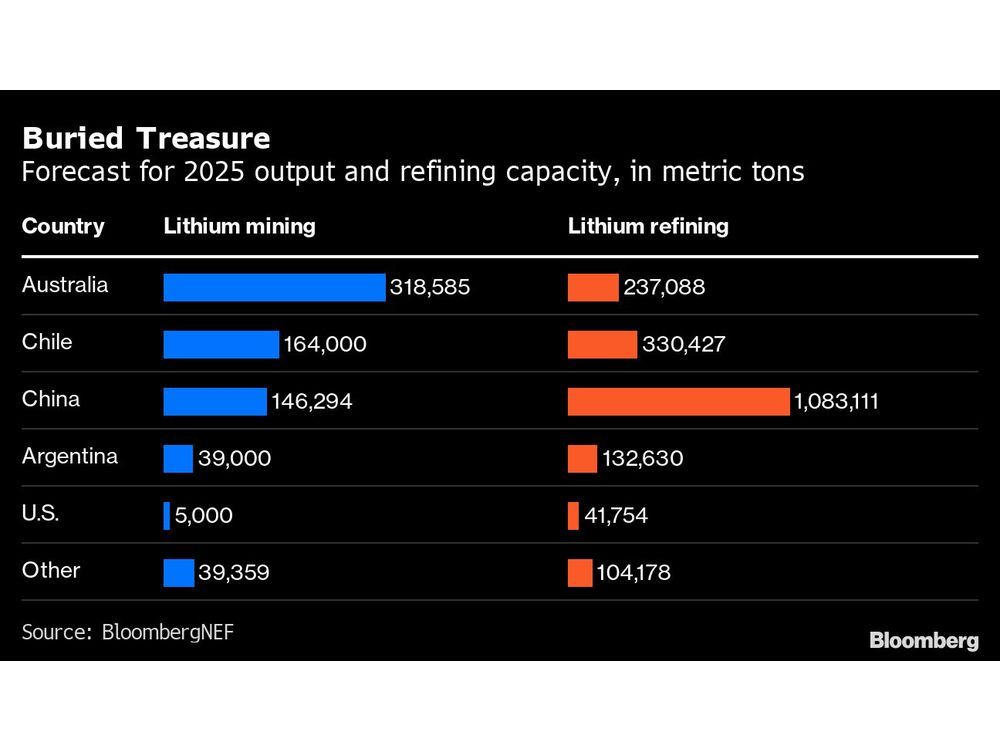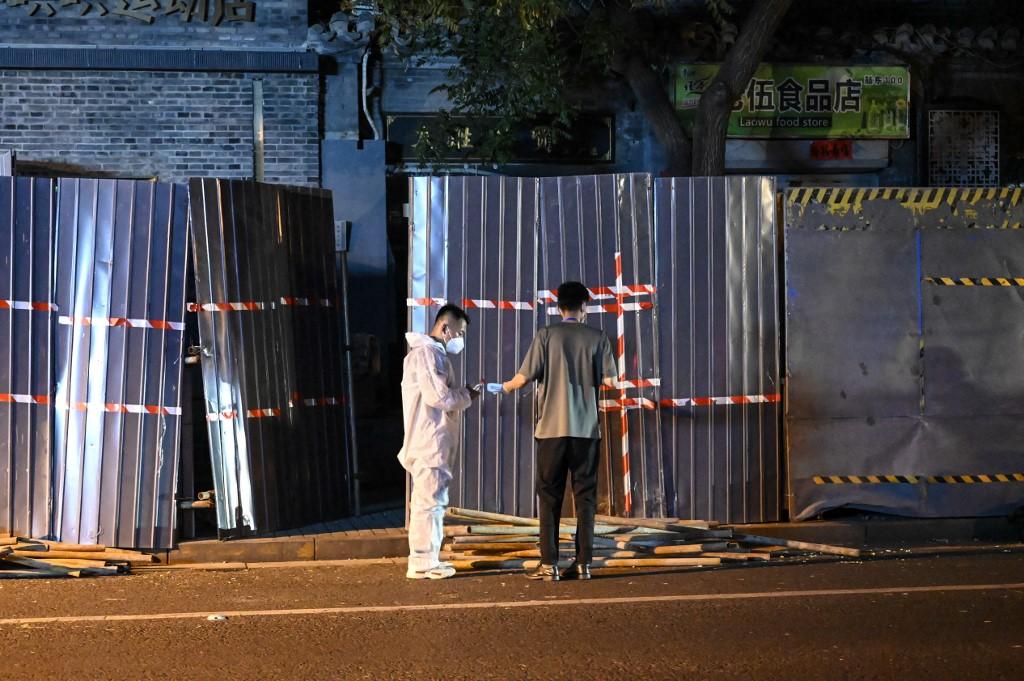[ad_1]
Prime lithium provider has a chance so as to add refining vegetation to automobile manufacturing and assist meet surging demand.
![k5a0mgc6im]dar1u700bbf2w_media_dl_1.png](https://smartcdn.gprod.postmedia.digital/financialpost/wp-content/uploads/2022/07/buried-treasure-forecast-for-2025-output-and-refining-capac.jpg?quality=90&strip=all&w=288&h=216)
Article content material
(Bloomberg) — Lithium powerhouse Australia, which produces about half of all unprocessed provides of the uncooked materials, wants so as to add capability in refining and manufacturing to assist the world meet surging demand for batteries, in line with Tesla Inc. Chair Robyn Denholm.
Article content material
Tesla alone will want greater than 3 terabyte hours of lithium-ion batteries for electrical automobiles and vitality storage by 2030, in comparison with the trade’s present international capability of about 1 terabyte, Denholm, who has helmed the automaker’s board since 2018, stated Tuesday in Sydney.
“I can’t consider a know-how that’s extra essential than lithium-ion batteries proper now,” she stated on the Australian Clear Vitality Summit. “To satisfy the problem of local weather change this complete trade must scale at sprinting tempo.”
Regardless of its huge mineral wealth, Australia accounts for less than 7% of refined lithium provide and the nation can do extra to make use of its benefits to develop manufacturing of specialist supplies, battery cells and electrical automobiles, in line with Denholm.
Article content material
“Australia has the minerals — not simply lithium — and likewise the knowhow and most of the expertise to seize the chance of this new vitality period,” she stated.
Learn extra: How a Battery Metals Squeeze Places EV Future at Threat: QuickTake
Tesla and different carmakers have this 12 months raised sticker costs, together with battery producers like Modern Amperex Know-how Co. Ltd., in response to increased prices of uncooked supplies, pushed not less than partly by demand that’s rising sooner than manufacturing capability. In lithium, nearly $14 billion is required to develop deliberate manufacturing capability by 2025, in line with BloombergNEF.
Australia’s authorities also needs to search to introduce fuel-efficiency requirements to speed up the adoption of electrical automobiles, Denholm stated. EVs accounted for two.4% of recent passenger automobile gross sales in Australia final 12 months, in comparison with 4.5% within the U.S. and 20% in Europe, BNEF stated in a Might report. “They should be robust requirements,” Denholm stated. “It’s no shock that the automobiles on our roads are among the many most polluting on the earth. Australia at the moment accepts automobiles that the remainder of the world doesn’t — they’re both too soiled or costly to run.”
[ad_2]
Source link








